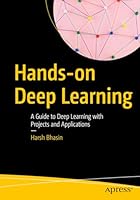
AI for Social Good: Using Artificial Intelligence to Save the World
- Length: 336 pages
- Edition: 1
- Language: English
- Publisher: Wiley
- Publication Date: 2024-03-06
- ISBN-10: 1394205783
- ISBN-13: 9781394205783
- Sales Rank: #0 (See Top 100 Books)
Understand the real power of AI and and its ability to shape the future for the better.
AI For Social Good: Using Artificial Intelligence to Save the World bridges the gap between the current state of reality and the incredible potential of AI to change the world. From humanitarian and environmental concerns to advances in art and science, every area of life stands poised to make a quantum leap into the future. The problem? Too few of us really understand how AI works and how to integrate it into our policies and projects.
In this book, Rahul Dodhia, Deputy Director of Microsoft’s AI for Good Research Lab, offers a nontechnical exploration of artificial intelligence tools―how they’re built, what they can and can’t do, and the raw material that teaches them what they “know.” Readers will also find an inventory of common challenges they might face when integrating AI into their work. You’ll also read more on:
- The potential for AI to solve longstanding issues and improve lives
- Learn how you can tap into the power of AI, regardless of the size of your organization
- Gain an understanding of how AI works and how to communicate with AI scientists to create new solutions
- Understand the real risks of implementing AI and how to avoid potential pitfalls
- Real-life examples and stories that demonstrate how teams of AI specialists, project managers, and subject matter experts can achieve remarkable products.
Written for anyone who is curious about AI, and especially useful for policymakers, project managers, and leaders who work alongside AI, AI For Social Good provides discussions of how AI scientists create artificially intelligent systems, and how AI can be used ethically (or unethically) to transform society. You’ll also find a discussion of how governments can become more flexible, helping regulations keep up with the fast pace of change in technology.

Arduino & MicroPython with ESP32: A Beginner's Guide to Hands-On Learning and DIY Projects - Part 1

Microsoft 365 Copilot At Work: Using AI to Get the Most from Your Business Data and Favorite Apps





